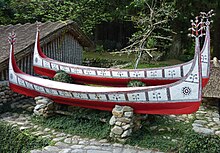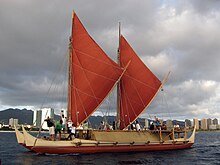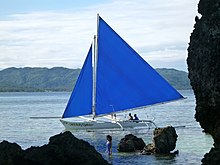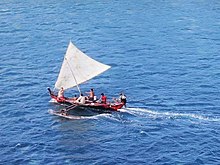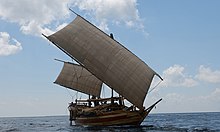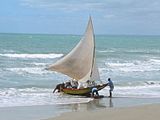Awang are traditional dugout canoes of the Maranao and Maguindanao people in the Philippines. They are used primarily in Lake Lanao, the Pulangi River, and the Liguasan Marsh for fishing or for transporting goods. They have long low hulls that are carved from single trunks of lauan and apitong trees. They have no outriggers but have a single sail or a paddle. The prow and the stern are commonly elaborately decorated with painted designs and okir carvings, usually of the piyako and potiyok a rabong motifs. Some awang are also decorated with a carved prow extension known as the panolong or kalandapon. [1] [2] [3]
See also
References
- ^ Madale, Abdullah T. (1997). The Maranaws, Dwellers of the Lake. Rex Bookstore, Inc. p. 82. ISBN 9789712321740.
- ^ Severino, Howie (24 May 2018). "Amid the ruins, a view of Marawi's rich environment". GMA News Online. Retrieved 21 November 2019.
- ^ "Awang". Museyo Kutawato. Retrieved 12 February 2020.
